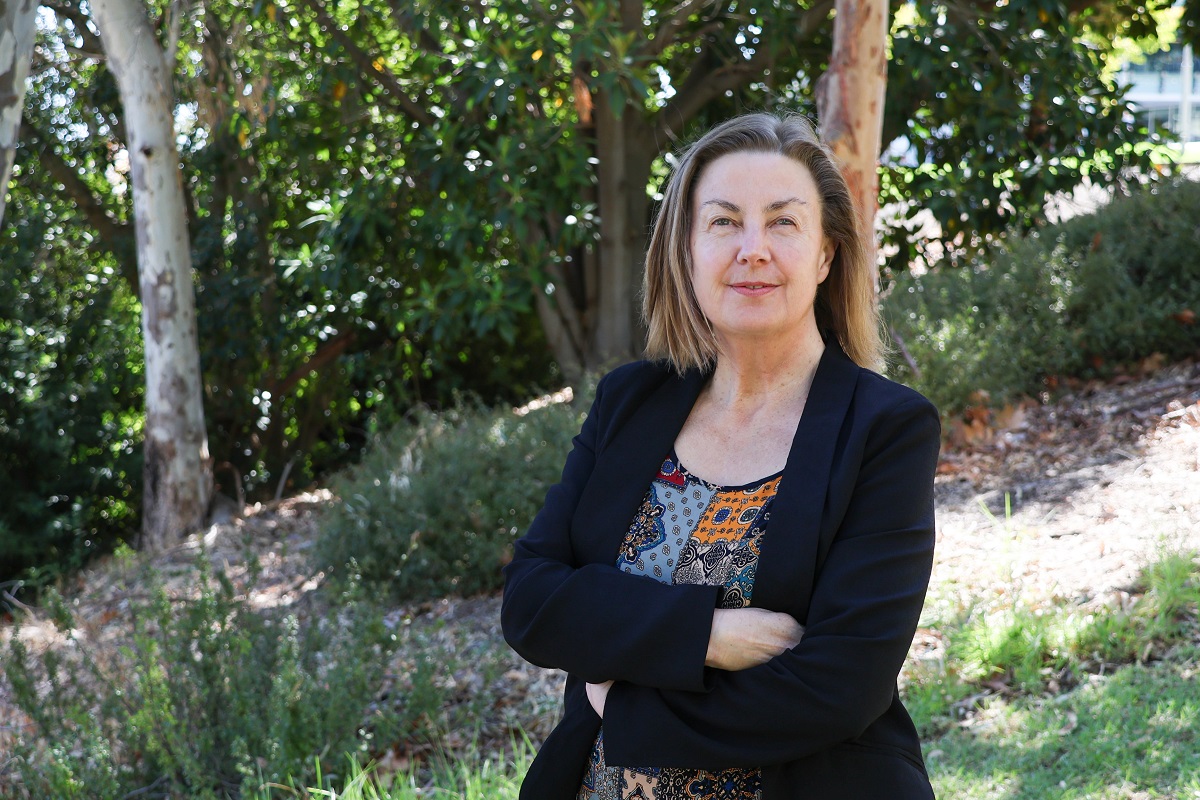
We sat down with Professor Tracey Wade to talk about misconceptions, citations and “old fogey wishful thinking”. We asked her how it feels to be one of the world’s foremost experts on eating disorder prevention and treatment, and where on campus she goes to be enchanted.
You’re a leading expert on the prevention and treatment of eating disorders – can you tell us a little about why you got into this field?
During my clinical masters training at the Australian National University, I completed my final placement in the Student Counselling Service. They did not get anybody coming for help with earing disorders and thought they would run a group for people with eating disorders to see if anyone was interested. They had enough demand for 2 groups, which I co-facilitated. Then my first job post-Masters was treating people with eating disorders in a research study at Cambridge University. Every person I talked to felt that that they were worthless and that the only way that they could see to prove their worth was through seeking control over their eating and weight, but this solution became a cruelly destructive problem. I was determined to help people avoid this perceived solution which resulted in such a poor quality of life and was also inspired to do a PhD in the area, which I completed at Flinders University.
What are you working on at the moment?
I am funded by a NHMRC Investigator Grant until 2028 which is a marvellous opportunity enabling me and my team to investigate different forms of early intervention in eating disorders. There are two strands. The first is developing and evaluating transdiagnostic early interventions using smart phone apps for people aged 12 to 25. The second is evaluating early intervention strategies in treatment to produce better outcomes, working with the people attending our Flinders University Services for Eating Disorders which I manage.
What is something often misunderstood/misinterpreted about eating disorders and eating disorder prevention/treatment?
A common misperception is eating disorders are limited to young females concerned about how they look. We know eating disorders increasingly affect all genders and age groups and that eating disorders are a disease heavily impacted by genetic vulnerabilities, comorbid psychiatric conditions, and a dominant environment that suggests we will all be happier and more worthwhile if we were just a bit thinner or following rules on clean and perfect eating.
If you could chat to your younger self, what is one piece of advice you’d share?
I would say that life really does get better as you get older, that this is not just old fogey wishful thinking. So, invest your time wisely in being the best version of yourself and then you will be best situated to grab all those amazing opportunities.
You’ve been named as a global top researcher, and one of your papers is one of the most-cited on Wiley, tell us how that feels.
It is always wonderful to know that the research I do is picked up by others and influences the international research agenda and the translation of evidence-based approaches in service provision for eating disorders.
What is next for you?
One of the most important next steps is mentoring of my team of talented postdocs and PhD students, to ensure that the work continues.
Where is your favourite place on campus?
I have always been drawn to the Humanities courtyard. I was bought there as a 17-year-old matriculation student by my English teacher (Sue Tulloch, married to Emeritus Professor Grahm Tulloch), and I thought it an enchanting space.
How do you spend your spare time?
My happy and restorative spaces include walking, swimming, cooking, reading, gardening, listening to music, spending time with my partner and with friends, and overseas travel. This is of course not in order of importance, in case my partner ever reads this.

